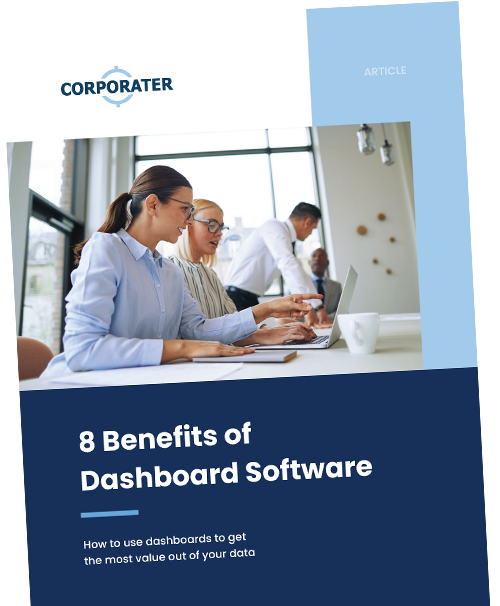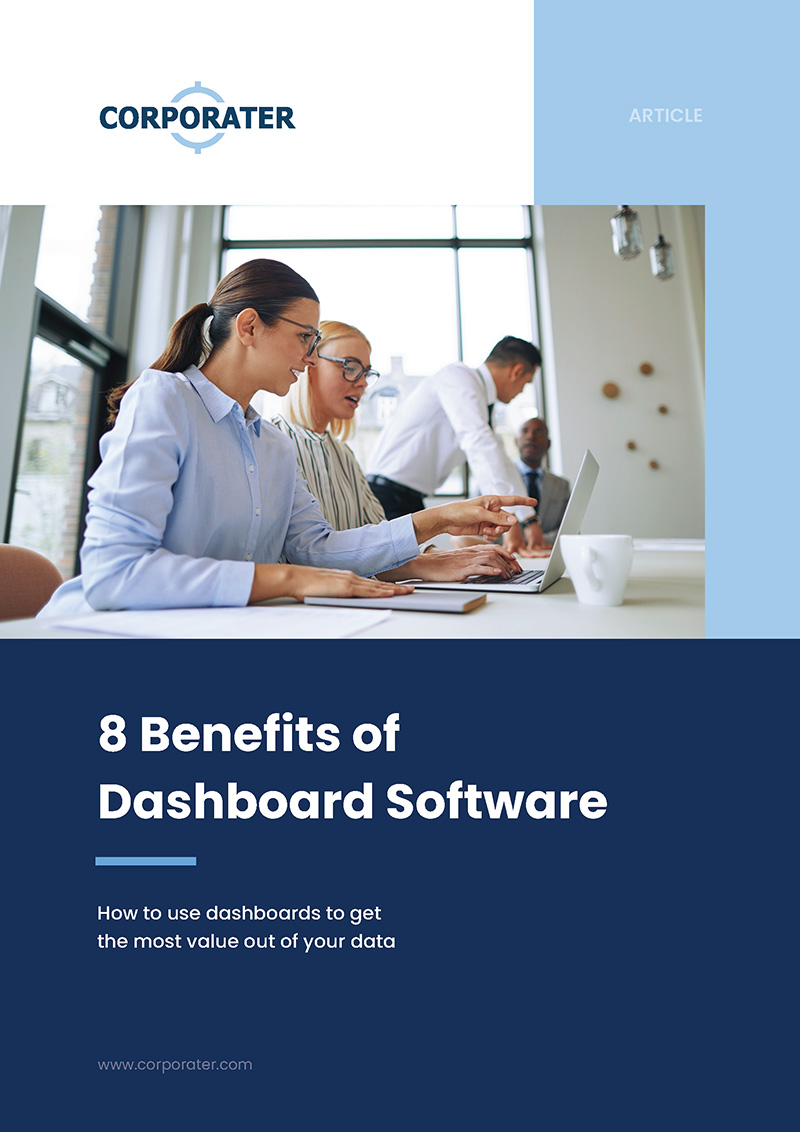Introduction
Nearly all businesses today have data. Lots of data. However, not all of them know how to use it to their benefit. In order to gain value from your data, your data needs to be centralized, organized, analyzed, turned into insights, and made available to those who need it when they need it. And that is where dashboard software comes into play.
What is dashboard software?
Dashboard software is a data visualization tool used by organizations to aggregate and display business data in custom views. It enables organizations to create custom dashboards, track KPIs, analyze data, uncover data insights, and use those insights to make informed business decisions.
The best dashboard software enables organizations to combine data from multiple sources into a single source of truth, analyze and view important data within its business context, display data as engaging data visualizations, quickly identify areas that require attention, take action on insights, and generate visually compelling reports.
What are the benefits of using dashboard software?
There are numerous benefits for organizations to use a dashboard software. Here are our top eight.
- A single source of truth
Dashboard software enables you to aggregate data from various data sources (such as data warehouses, databases, third-party applications, user input, etc.), combine it into a single source of truth, and feed relevant data into relevant dashboards across your organization. Having a single source of truth for your data helps break down data silos, improve data transparency, and build a data-literate culture.
- Custom dashboards
Dashboard software enables you to create custom dashboards tailored to the end users’ specific needs. For instance, your CEO dashboard may include top level KPIs that provide a snapshot of the overall health of the business, while your sales department dashboard may display KPIs relevant to the sales performance of individual business units. With custom dashboards, you can provide your teams with an at-a-glance overview of metrics that are relevant to their specific role, which will help them stay focused on what is important.
- Better data understanding
Dashboard software enables better data understanding because it lets you present data in a way that is easy to understand. Dashboard software combines large amounts of complex structured and unstructured data and presents it in a uniform way as various data visualizations. Using data visualizations makes your data not only more visually pleasing but also easier to digest, especially for non-technical users. Most dashboard software tools come with a robust set of data visualization options to choose from, including charts, graphs, and heat maps.
- Smarter decision-making
Dashboard software enables you and your teams to make faster, smarter, data-driven decisions. Because dashboard software aggregates data from across the organization, it can guide decision-makers on where they should take action. For instance, if a dashboard shows that sales are up in regions A and B, but down in region C, the head of sales may launch an investigation – drill down on the KPI to identify the root cause of the decline and take corrective action where needed. With dashboards, users may quickly see which KPIs are performing well and which KPIs need their attention. Users may quickly spot emerging risks, identify areas for improvement, and use data insights to take the best course of action.
- Time and cost savings
Trying to collect, combine, analyze, and report your data manually is time-consuming and inefficient. Dashboard software enables you to automate data collection, analysis, and reporting, therefore saving you time and resources. With dashboard software, all your data is always readily available in the system. You may automate data analyses and reports generation, and have your reports automatically deployed to specified stakeholders on a scheduled basis. Automation not only saves you time and resources but also increases your overall operational efficiency.
- Increased productivity
With all metrics, KPIs, and assignments in one place, your teams will be able to become more productive. They will know exactly which tasks they are responsible for, which projects and initiatives are on track, and what needs to be followed up on. A good dashboard software also allows you to automate processes, workflows, and manual tasks (e.g., report generation, reminders, new task assignments, etc.), so your teams can become more efficient – get more done in less time.
- Easier sharing and communication
Dashboard software makes it easy to share information across your organization. Most dashboard software tools enable users to add comments, upload meeting notes, communicate tasks and assignments, share links to reports, and more. With all your data accessible in one central location your business units may exchange information and collaborate in an interconnected way. This approach helps break down silos and leads to more efficient communication.
- Automated alerts and notifications
Get notified. Automatically. Dashboard software enables you to set up custom alerts and notifications for instances such as new assignments, reports ready for review, audit complete, past due certification, emerging risk, KPI below a set threshold, etc. Using automated alerts and notifications saves you and your teams time and allows everyone to stay informed about their tasks, important events, and new developments.
Final thoughts
To get the most value out of your data you need to be able to combine it, analyze it, translate it into actionable insights, and share those insights across your organization with those who need it when they need it. The best, most efficient way to do so is to use a dashboard software.
A good dashboard software enables you to:
- Have a single source of truth for all your data
- Create custom dashboards tailored to the end users’ specific needs
- Gain a better understanding of your data with data visualizations
- Make faster, smarter, data-driven decisions
- Save time and resources by automating data collection and analysis
- Increase productivity and efficiency by automating manual tasks
- Share information across your organization
- Automate alerts and notifications
By using a dashboard software, you will be able to monitor and manage the health of your business on custom dashboards, provide your teams with a single source of truth for your data, distill valuable insights from your data, and use these insights to make faster, smarter, data-driven decisions that will drive value for your business.

8 Benefits of Dashboard Software
How to use dashboards to get the most value out of your data

